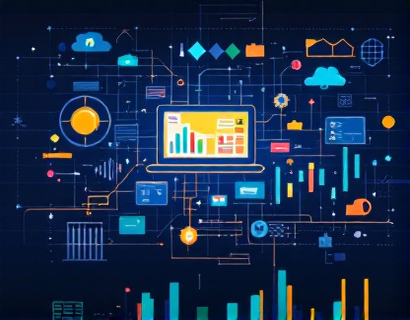Exploring Premier Innovations in AI Services for Industry Transformation
In an era where technology is rapidly reshaping the business landscape, artificial intelligence (AI) stands out as a pivotal force driving innovation and efficiency across various sectors. The AI showcase platform serves as a comprehensive hub where industry leaders and innovators can discover and integrate the latest advancements in AI technology. This platform is meticulously designed to connect tech enthusiasts, developers, business leaders, and forward-thinking professionals with cutting-edge AI solutions that have the potential to transform industries.
The primary goal of this showcase is to provide a detailed and educational resource for those interested in harnessing the power of AI. By exploring a wide range of AI services, professionals can gain insights into how these technologies can be tailored to meet specific industry needs, ultimately unlocking new levels of productivity and success.
Understanding the AI Ecosystem
To fully appreciate the transformative potential of AI, it's essential to understand the ecosystem from which these innovations emerge. AI encompasses a broad spectrum of technologies, including machine learning, natural language processing, computer vision, and robotics. Each of these subfields plays a crucial role in developing solutions that can automate complex tasks, analyze vast amounts of data, and provide actionable insights.
Machine learning, a core component of AI, enables systems to learn from data and improve their performance over time without being explicitly programmed. This capability is particularly valuable in industries such as finance, healthcare, and manufacturing, where data-driven decisions can lead to significant improvements in efficiency and accuracy.
Natural language processing (NLP) focuses on enabling machines to understand and generate human language. This technology is revolutionizing customer service through chatbots and virtual assistants, as well as enhancing data analysis by extracting insights from unstructured text data.
Computer vision, another critical aspect of AI, involves training algorithms to interpret and make decisions based on visual data. Applications range from autonomous vehicles to medical imaging, where precise image analysis can lead to better diagnostic outcomes.
Robotics, while often associated with physical automation, is increasingly integrated with AI to create intelligent systems capable of performing tasks that traditionally required human intervention. This synergy is particularly evident in logistics and manufacturing, where robots equipped with AI can optimize production processes and reduce errors.
Latest Advancements in AI Technologies
The AI landscape is constantly evolving, with new breakthroughs emerging regularly. One of the most significant advancements in recent years is the development of generative adversarial networks (GANs). GANs consist of two neural networks that compete against each other, resulting in highly realistic data generation. This technology has profound implications for industries such as entertainment, where it can be used to create realistic graphics and special effects, and in design, where it can generate novel product concepts.
Another notable advancement is the progress in reinforcement learning, a type of machine learning where agents learn to make decisions by performing actions and receiving feedback in the form of rewards or penalties. This approach has led to significant improvements in areas such as game playing, with AI systems like AlphaGo demonstrating superhuman performance in complex strategic games.
Transfer learning, which involves applying knowledge gained from one task to another related task, has also seen substantial advancements. This technique reduces the need for large datasets and computational resources, making AI more accessible and efficient for a broader range of applications.
AI Services Tailored for Various Industries
The versatility of AI technologies means that they can be tailored to meet the unique challenges and opportunities of different industries. Here are some examples of how AI services are being leveraged across various sectors:
- Healthcare: AI is transforming healthcare by improving diagnostic accuracy, personalizing treatment plans, and optimizing operational workflows. For instance, AI-powered imaging tools can detect early signs of diseases such as cancer with high precision, while predictive analytics can help manage patient flow and resource allocation.
- Finance: In the financial sector, AI is enhancing fraud detection, risk assessment, and customer service. Machine learning models can analyze transaction patterns to identify suspicious activities in real-time, while chatbots powered by NLP can provide 24/7 customer support and financial advice.
- Manufacturing: AI is revolutionizing manufacturing through predictive maintenance, quality control, and supply chain optimization. By analyzing sensor data from machinery, AI can predict equipment failures before they occur, reducing downtime and maintenance costs. Computer vision systems can inspect products for defects with high accuracy, ensuring consistent quality.
- Retail: Retailers are leveraging AI to enhance customer experiences and optimize operations. Personalized recommendations driven by machine learning algorithms can increase customer engagement and sales. AI-powered inventory management systems can predict demand and optimize stock levels, reducing waste and improving efficiency.
- Transportation: The transportation industry is witnessing a paradigm shift with the advent of autonomous vehicles and smart traffic management systems. AI enables vehicles to navigate safely and efficiently, while real-time data analysis can optimize traffic flow and reduce congestion.
These examples illustrate the broad applicability of AI services and their potential to drive significant value across diverse industries. By integrating AI solutions, businesses can gain a competitive edge, streamline operations, and innovate in ways that were previously unimaginable.
Benefits of AI Services for Businesses
The adoption of AI services offers numerous benefits for businesses of all sizes. One of the most compelling advantages is the enhancement of productivity. AI can automate repetitive and time-consuming tasks, allowing employees to focus on higher-value activities that require human creativity and critical thinking. This not only increases efficiency but also boosts employee satisfaction and retention.
Another significant benefit is the improvement in decision-making processes. AI-driven analytics can process and analyze vast amounts of data quickly, providing insights that inform strategic decisions. This data-driven approach reduces the risk of human bias and ensures that decisions are based on objective evidence.
AI also plays a crucial role in customer experience enhancement. Through personalized interactions and seamless service delivery, businesses can build stronger relationships with their customers. AI-powered chatbots and virtual assistants can handle a high volume of customer inquiries efficiently, ensuring timely and accurate responses.
Moreover, AI can help businesses stay ahead of market trends and consumer preferences. Predictive analytics and sentiment analysis enable companies to anticipate changes and adapt their strategies proactively. This foresight is invaluable in today's fast-paced business environment, where agility and adaptability are key to success.
Challenges and Considerations
While the benefits of AI are undeniable, there are also challenges and considerations that businesses must address when integrating AI services. One of the primary concerns is data privacy and security. AI systems often require access to large datasets, which can include sensitive information. Ensuring that data is handled securely and in compliance with regulations is paramount.
Another challenge is the need for skilled professionals who can develop, implement, and maintain AI solutions. The demand for AI expertise is growing, but there is a shortage of qualified individuals. Businesses must invest in training and development programs to build in-house capabilities or partner with external experts.
Ethical considerations also play a crucial role in AI adoption. Issues such as bias in AI algorithms and the potential for job displacement must be carefully managed. Transparency and accountability in AI decision-making processes are essential to build trust and ensure ethical use of these technologies.
Future Trends in AI Services
Looking ahead, the AI landscape is poised for further innovation and expansion. One of the emerging trends is the integration of AI with other cutting-edge technologies such as the Internet of Things (IoT) and 5G networks. This convergence will enable more intelligent and connected systems, enhancing the capabilities of AI in real-world applications.
Another area of growth is the development of explainable AI (XAI), which focuses on making AI decisions more transparent and understandable. As AI becomes more prevalent, the ability to explain how decisions are made will be crucial for gaining acceptance and trust from users.
Additionally, the rise of edge computing is set to transform AI by bringing computation closer to the data source. This approach reduces latency and improves the efficiency of AI applications, particularly in scenarios where real-time processing is essential, such as autonomous driving and industrial automation.
Conclusion
The AI showcase platform serves as a vital resource for industry leaders and innovators seeking to harness the transformative power of AI. By exploring and integrating advanced AI services, businesses can unlock new opportunities for growth, efficiency, and innovation. As the AI ecosystem continues to evolve, staying informed and adaptable will be key to thriving in the digital age.










































